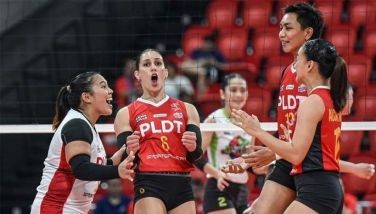There ought to be a law
Studies have shown that there are too many laws in the Philippines. This writer has been told that it costs hundreds of millions of pesos to make one, when you factor in all the resources spent in committee hearings “in aid of legislation” in both houses of Congress that don’t result in any real laws. There is also a lot of political backscratching that causes some bills to be put at the bottom of the pile, regardless of how useful they are. At times, laws are influenced by their pertinence of the headlines, and the lawmakers gain the appearance of white knights rushing in to the common man’s succor.
The second problem is that many laws have no implementing rules or regulations (IRRs) which most people only realize after the fact. Even if there is a law, it does not say who will implement it, how it will be implemented, and which source of government funds would be used to make it happen. A simple example would be the Arnis Law, which former president Gloria Arroyo signed at the end of 2009. It states that arnis would be the official sport and martial art of the Philippines, and would therefore be taught in all schools. It does not explain how that is supposed to happen, and who is qualified to teach it at which level. And this was before the implementation of the new K-12 program. Will it have to be amended to make it specific to the new educational mandate?
In a rather depressing side note, many laws just blindly state that they will get a certain percentage of the revenues from government agencies like the Philippine Amusement and Gaming Corporation (PAGCOR) or, less often, the Philippine Charity Sweepstakes Office (PCSO). Unfortunately, there is no law keeping track of the sum total of all the pounds of flesh that all these laws are supposed to subtract every month. In this case, perhaps it’s fortunate that there are no IRRs, or else both agencies would find themselves in grave debt without knowing how in the world it happened. Coordination is apparently not a strong suit in the highly specialized and individualistic world of law-making. Sometimes, all the effort turns out much ado about nothing. And when all the cheering fades, we realize that that’s what we might end up with.
Programs initiated by line agencies in the government are more effective, but also more fragile. An agency may have a potent program in place, but when a new president is elected into office and has to find replacements for over 55,000 plus appointees, the newbies in government want to show off, sometimes at the expense of what already works. Elected officials, though they try to take credit for their predecessors’ work, at least keep those projects and accomplishments active. Appointed officials, however, often rewrite history books to start with their coming to power. Sadly, there is no system for redress for the latter, nor any mechanism to restore what has been erased.
In sports, there is still no clear, unified policy. Do we forsake popular sports like basketball and boxing to their private patrons, and concentrate on sports wherein one athlete can win multiple medals like athletics and swimming, the centerpieces of the Olympic Games? Do we just give every sport a fixed amount annually and let them sink or swim? Do we just privatize sports in general and just concentrate development in the hands of the government? At what age do we start recruiting athletes for national teams? Do we decentralize the training of athletes to places where their sports are strongest? How do we balance out the power in sports and keep big schools from Metro Manila from poaching the best provincial talent after every Palarong Pambansa and Batang Pinoy? What do we do with arnis and our indigenous games which have no consolidated organization internationally? Most importantly, how do we secure consistent funding that does not ebb and flow with the whims of Congress?
There are two prevailing – albeit weak – efforts in both houses. First is the long-standing attempt to elevate the PSC to the Cabinet level. As we know, when sports was removed from the Department of Education, it lost its presence at the highest level of government. If it is taken out from under the Office of the President and given the cabinet position it deserves, things would be different, the budget would be stable, programs would be more easily implemented, and there would be a clearer direction. Seriously, how can you plan long-term when you don’t know how much next year’s budget is? And how can we really excel when our athletes still need day jobs to support themselves on an athlete’s allowance?
The second effort is to consolidate sports laws into a cohesive program, which may be the tougher task of the two. After all, how do we unify the plans for the various sports which all have different training regimens, body types, age requirements, nutritional needs and travel plans? If money will still be the primary consideration, we will continue to support the sports that are already successful, and the divide between the rich and the poor will only widen. Beyond that, we will concentrate on the aforementioned individual, multiple-medal sports, placing our proverbial eggs in a smaller basket.
Historically, sports has been a very low priority at the legislative level. In Congress, the programs are more concentrated on local infrastructure, health and education. Funds for hospitals, schools and roads are used both to bridge constituents and to separate the incumbents from their challengers. If only they would take a step back and look even at the medium term, a stronger youth and stronger citizenry would relieve much of the big burden of medical institutions, particularly in the provinces. Physically fit students are more alert students and will perform better in school, and will in turn become more productive, less disorderly members of society. And all it takes is a little regular physical activity to unearth all of this, and perhaps discover the next big hero of the country.
- Latest
- Trending




























